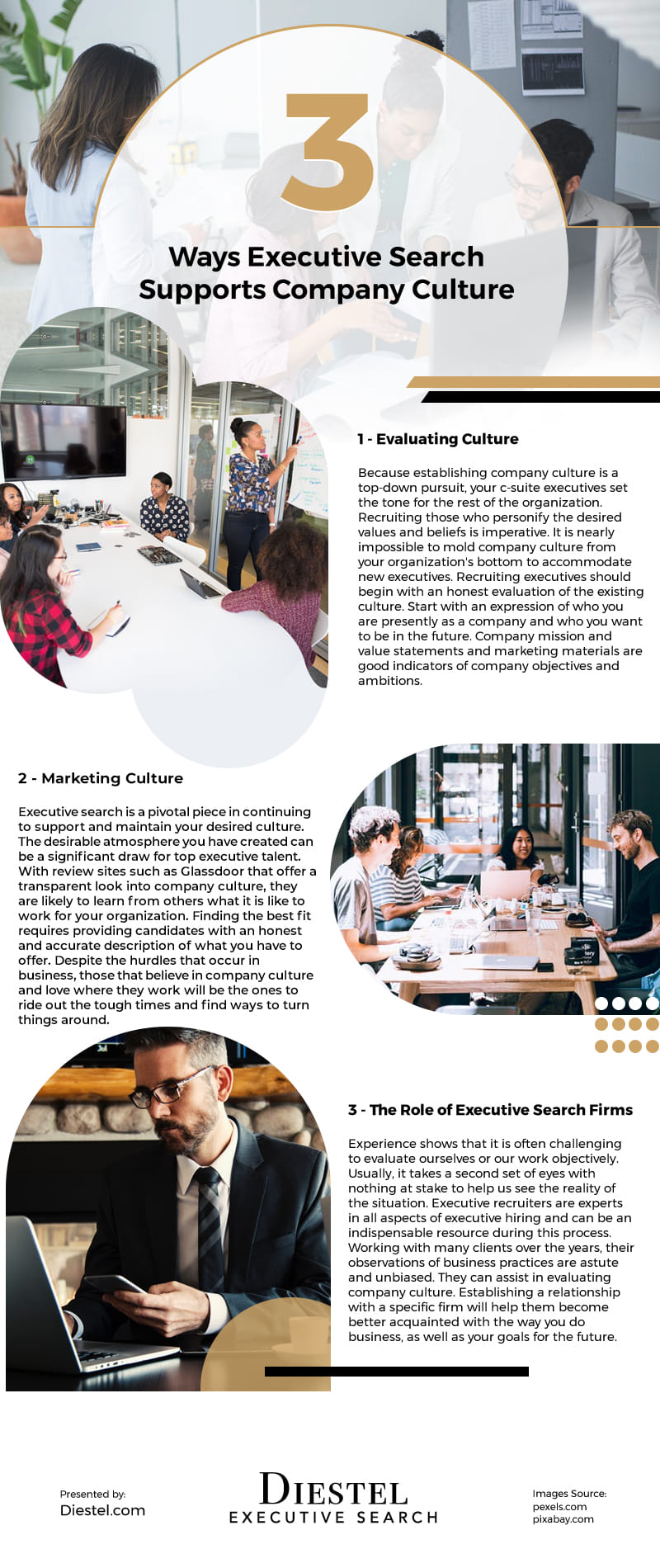The anticipated behaviors and beliefs shared among employees that constitute company culture are a top predictor of job satisfaction. A culture where every individual feels valued and supported in their efforts correlates strongly with business success. Employees are more motivated to apply themselves and exceed expectations in this positive atmosphere.
Factors influencing corporate culture fall into two distinct categories. Tangible contributors include the office’s dress code, the desk layout, office décor, and noise level within the office. These features can set the tone for casual or formal interactions. Intangible factors such as the stated company vision and values and the tone of interpersonal relationships influence daily operations as well. Are supervisors approachable? Do coworkers spend time together outside of work? The answers to these questions can dictate workflow and the way in which employees respond to one another.
Highly hierarchical structuring and formal business operations are not the best fit for everyone. Thus, some organizations are moving towards more unique working environments where there is less administration. These casual office environments support entrepreneurial efforts among employees and provide more transparency. Whatever the style and structure that your company embodies, the resulting culture is a vital characteristic of the business and should be a major contributing factor in recruiting and executive search.
Table of Contents
Evaluating Culture
Because establishing company culture is a top-down pursuit, your c-suite executives set the tone for the rest of the organization. Recruiting those who personify the desired values and beliefs is imperative. It is nearly impossible to mold company culture from your organization’s bottom to accommodate new executives.
Recruiting executives should begin with an honest evaluation of the existing culture. Start with an expression of who you are presently as a company and who you want to be in the future. Company mission and value statements and marketing materials are good indicators of company objectives and ambitions. However, while these materials reflect the best of intentions, they may not be completely accurate. Ensuring that the culture that you market to potential executives is consistent with actual experience is crucial. Inaccurately reflecting company culture to candidates can lead to poor retention and losses in recruiting and training costs.
Take the time to observe employee interactions. Do the actions and conversations you observe support the ideals you aspire to engender in your organization? If they don’t, identify the places where gaps exist. Working with your top executives to change problem behaviors and encourage new ones as quickly as possible is essential. Together executives can set an example for other employees to emulate. In rare instances, an organization may hire a new executive to overhaul the existing culture and align it more closely with company values. However, this strategy is not always successful and may lead to frustration for your new executive.
Marketing Culture
Executive search is a pivotal piece in continuing to support and maintain your desired culture. The desirable atmosphere you have created can be a significant draw for top executive talent. Finding the best fit requires providing candidates with a honest and accurate description of what you have to offer.
Just as you have done your homework in researching your candidates, they have likely done the same. With review sites such as Glassdoor that offer a transparent look into company culture, they are likely to learn from others what it is like to work for your organization. It is best to be upfront with candidates. If you are currently implementing a course correction, help them see how they can fit into the big picture and support these positive changes. Despite the hurdles that occur in business, those that believe in company culture and love where they work will be the ones to ride out the tough times and find ways to turn things around.
The Role of Executive Search Firms
Experience shows that it is often challenging to evaluate ourselves or our work objectively. Usually, it takes a second set of eyes with nothing at stake to help us see the reality of the situation. Executive recruiters are experts in all aspects of executive hiring and can be an indispensable resource during this process. Working with many clients over the years, their observations of business practices are astute and unbiased. They can assist in evaluating company culture. Establishing a relationship with a specific firm will help them become better acquainted with the way you do business, as well as your goals for the future.
Recruiters may be able to glean additional information from current employees about working conditions through conducting interviews. Asked directly by a manager or executive about company culture, employees may respond with socially acceptable answers or what they believe you want to hear. However, a third party may learn about underlying expectations and prevailing attitudes that could undermine productivity unless addressed. They can even help you implement the necessary changes to refine company culture.
With cultural deficiencies addressed, an executive search agency can be instrumental in finding an executive that will fit well into the established culture and help support it. Strengthening your company culture to achieve the goals and aspirations that you have for your company is one of the many vital roles that c-suite executives have. Finding the right fit for executives leads to greater job satisfaction, employee retention, and greater business success.
Infographic
A company culture that supports you and makes you feel valued is expected to have success. Besides, the top predator of job satisfaction is the behaviors and beliefs shared among employees. When one is in a positive atmosphere, they are more motivated to exceed expectations. To establish the ideal company culture, you should put a suitable executive in the position.

